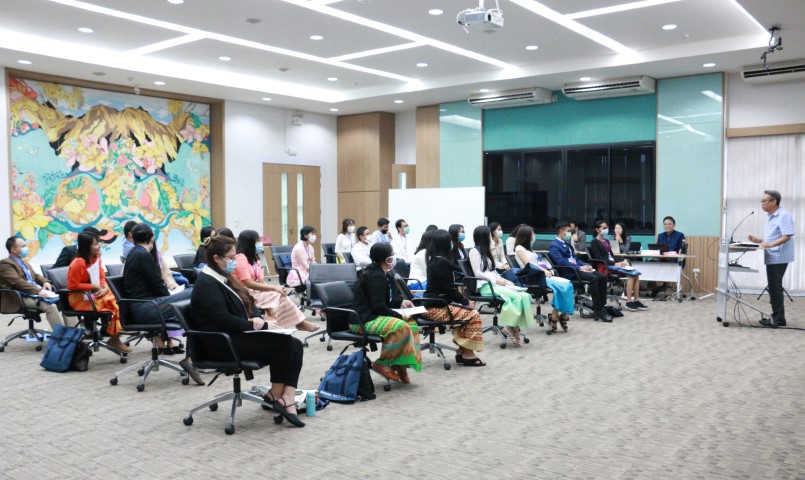As part of the global celebration of the World Food Day, Mekong Institute (MI) opened its regional training program on “Managing Food Safety Along the Food Supply Chain” at the MI Headquarters in Khon Kaen, Thailand on October 19, 2020. Organized under the New Zealand Aid Programme-funded project on Promoting Safe Food for Everyone (PROSAFE), this one-week course was designed to raise participants’ awareness on emerging safe food issues and concerns, with special focus on the impact of the ongoing global health crisis on the region’s agri-food sector.
At his opening remarks, Mr. Suriyan Vichitlekarn, MI Executive Director, highlighted the relevance of the training program and explained that the training is one of MI’s initiatives to contribute in achieving global and regional goals. “Access to safe food is a basic human right,” he emphasized.
“In MI, we would like to capitalize on how our organization can facilitate regional cooperation to foster local development so that the general public, including all of us here today, can enjoy the privileges of consuming good quality and safe products,” he continued.
As future leaders and food safety champions, Mr. Vichitlekarn encouraged the trainees to actively participate in the sessions, share their experiences, and interact with the invited resource persons.
Twenty-six master’s and doctorate degree students from Cambodia, P.R. China, Myanmar, and Vietnam were selected to participate in this regional training program. These graduate students are currently studying in different universities in Thailand focusing on various areas of expertise including food science and technology, food engineering, public health and nutrition, agriculture, as well as rural development and economics. Among the universities represented are Khon Kaen University, Chulalongkorn University, Kasetsart University, Asian Institute of Technology, Mahidol University, Thammasat University, King Mongkut’s University of Technology Thonburi, and King Mongkut’s University of Technology North Bangkok.
In the next five days, trainees will attend interactive sessions on basic concepts and prominent food safety issues in the region; food safety management tools for different stages of the food supply chain; and best practices in food safety governance. Sessions will be delivered by MI and regional experts from the Food and Agriculture Organization, Asian Development Bank, and the Thai Ministry of Public Health.
This is the third safe food course organized in 2020 under the PROSAFE Project. The five-year initiative seeks to build regional and local expertise on food safety through capacity building and post-training outreach activities in Cambodia, Lao PDR, Myanmar, and Vietnam. Ultimately, this project hopes to promote strengthened collaboration among public, private, and academic sectors leading toward demonstrable changes in food safety practices in the region.








